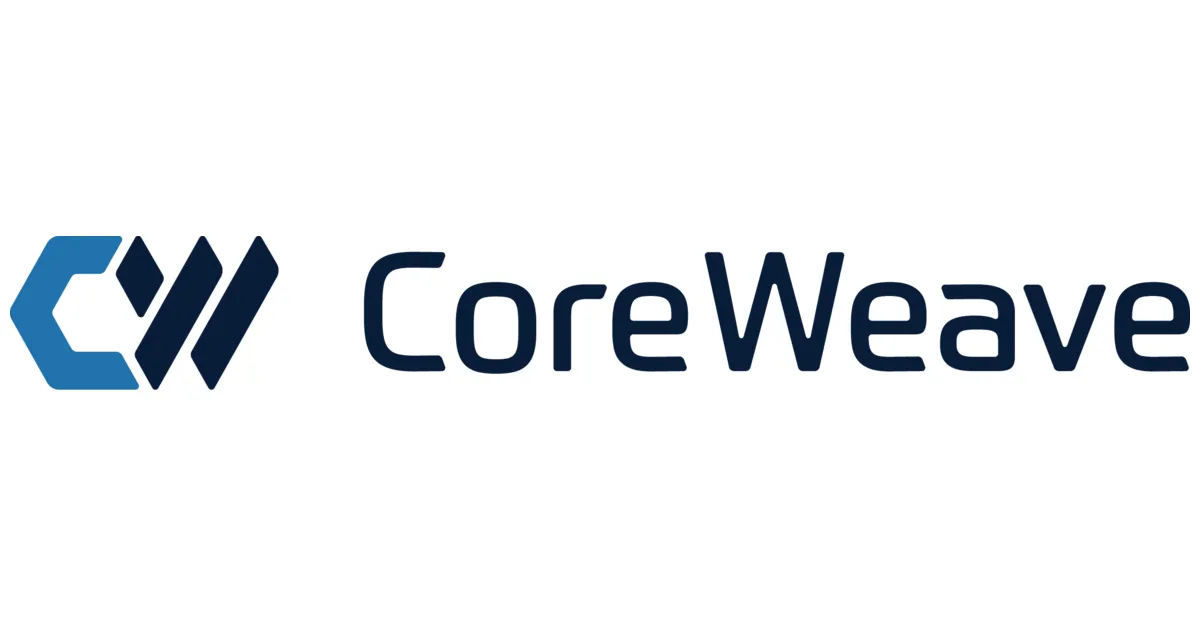Choosing the right hosting provider for your GPU instances is a key decision that can affect the performance, cost, and success of your projects. The market includes a variety of companies, from established providers to newer, more specialized businesses.
GPU Cloud Providers
We take a look at five GPU Hosting Services providers, with a detailed breakdown to help you compare the GPU services offered.
#1 Atlantic.Net
Atlantic.Net is a well-established hosting provider with over three decades of experience in the technology industry, providing cloud hosting, dedicated server hosting, and colocation services.
Atlantic.Net has developed a strong GPU hosting solution, featuring powerful NVIDIA GPU instances. The service is engineered for demanding applications such as AI model training, deep learning, high-performance computing (HPC), professional graphics rendering, and intensive video encoding tasks.
Pros:
- Extensive Experience: Over 30 years in the hosting industry, indicating stability and a deep understanding of infrastructure needs.
- High-Performance Hardware: Provides access to cutting-edge NVIDIA GPUs, including the NVIDIA H100 NVL and L40S, ensuring top-tier computing power.
- Optimized Infrastructure: Combines powerful GPUs with fast NVMe storage and high-bandwidth networking to prevent bottlenecks and maximize throughput for AI workloads.
- Security and Compliance Focus: Strong emphasis on security, with data centers and services meeting compliance standards such as HIPAA, PCI DSS, and SOC 2/3, which is beneficial for handling sensitive data.
- Reliability: Known for a dependable platform with a 100% uptime Service Level Agreement for its cloud services.
- Comprehensive Support: Offers 24/7/365 customer and technical support from an experienced team based in the United States.
- User-Friendly Platform: Features an intuitive control panel for managing GPU instances and other cloud resources within your cloud account.
Ideal for:
- Businesses and organizations that need high availability and secure GPU instances for critical AI/ML projects.
- Users who need access to the latest NVIDIA GPU technology, like the NVIDIA H100, for compute-intensive training of deep learning models or large-scale simulations.
- Companies in regulated industries (e.g., healthcare, finance) require a hosting provider with a strong compliance posture.
- Developers and researchers looking for a stable platform with strong support for both short-term projects and long-running, demanding applications.
- Those who appreciate a provider with a long track record and a commitment to hardware quality and network performance.
#2 Lambda Labs
Lambda Labs has gained recognition within the Artificial Intelligence and Machine Learning communities by supplying GPU cloud services and physical hardware specifically geared towards deep learning and other AI workloads.
Pros:.
- Powerful NVIDIA GPUs: Access to a variety of high-end NVIDIA GPU options, such as the A100 and NVIDIA H100.
- Large Cluster Capabilities: Known for supplying GPU clusters equipped with high-speed InfiniBand interconnects, which are very useful for large-scale training of deep learning models.
- Colocation Services: Provides colocation options for companies looking to house their own AI infrastructure.
Cons:
- Pricing: On-demand rates for GPU instances can be higher compared to some more budget-oriented providers.
- Regional Availability: The number of self-service regions for their GPU cloud might be more limited than what is offered by hyperscale cloud providers.
- Free Credits/Trials: May have fewer free credits or trial programs compared to some larger competitors.
Ideal for:
- AI startups and enterprises that need robust multi-GPU instances and cluster capabilities for training very large or complex models.
- Projects that require a combination of cloud and on-premises hardware solutions.
- Users who prioritize access to well-configured, high-performance NVIDIA GPU clusters over having the lowest possible cost.
#3 CoreWeave
CoreWeave has rapidly established itself as a specialized GPU cloud provider. Their primary focus is on delivering large-scale GPU compute capacity, using an extensive inventory of NVIDIA GPUs.
Pros:
- Performance-Tuned Infrastructure: Their platform is purpose-built and optimized specifically for high-performance GPU workloads, particularly for AI/ML and rendering.
- Scalability for Large Deployments: Designed to handle very large-scale training and inference workloads effectively.
- Strong NVIDIA Partnership: A close relationship with NVIDIA may help ensure a consistent supply of the latest GPU hardware.
Cons:
- Niche Focus: Primarily concentrates on high-end, large-scale GPU compute, so it might not offer the same breadth of general cloud services as major cloud providers.
- Complexity for Smaller Users: The platform and pricing might be geared more towards large enterprises rather than individual developers or small-scale projects with intermittent needs.
- Cost Structure: While potentially cost-effective for large volumes, pricing for smaller deployments might be less competitive than some alternatives.
Ideal for:
- AI-first companies and large enterprises with substantial and continuous demand for GPU computing power.
- Organizations undertaking very large-scale AI model training, particularly for generative AI and large language models.
- Visual effects studios and rendering farms that require massive parallel processing capabilities.
- Users who need access to the absolute cutting edge of available NVIDIA GPU technology at scale.
#4 Scaleway
Scaleway is a European cloud provider that furnishes a variety of cloud computing services. These include standard compute instances, bare metal servers, and AI-ready GPU instances. They often highlight their transparent pricing structure and a strong commitment to European data sovereignty, including GDPR compliance.
Pros:
- Transparent and Competitive Pricing: Known for clear pricing models that can be quite competitive, especially for users within their target market.
- European Data Sovereignty: Strong focus on GDPR compliance with data centers located exclusively in Europe (e.g., Paris, Amsterdam, Warsaw), appealing to customers with specific data residency needs.
- Modern GPU Selection: Provides access to current NVIDIA GPUs, including options like the NVIDIA H100, L40S, and L4, suitable for various AI workloads.
- Startup Friendly: Offers a startup program that can provide credits and support, making it attractive for new ventures.
- Sustainability Focus: Actively works on sustainable infrastructure with attention to power usage efficiency (PUE).
Cons:
- Limited Global Reach: Data center presence is primarily concentrated in Europe, which might not be optimal for applications requiring low latency to users in other parts of the world.
- Fewer Managed Services: The range of managed services, particularly for advanced AI or database solutions, may be less extensive compared to hyperscale cloud providers.
- Ecosystem Maturity: Their marketplace and third-party integrations might be less developed than those of larger, global providers.
- No HIPAA Compliance: Not suitable for U.S. healthcare applications that require HIPAA compliance.
Ideal for:
- European startups and businesses that prioritize GDPR compliance and data sovereignty.
- Users looking for cost-effective GPU instances with transparent pricing for AI model training and other GPU-accelerated tasks.
- Development teams that value a clean user interface and easy onboarding.
- Organizations that prefer a European hosting provider may benefit from their startup programs.
#5 Microsoft Azure
Microsoft Azure is a comprehensive cloud computing platform that provides a wide range of services, including powerful GPU instances optimized for AI/ML workloads. Azure offers a robust infrastructure, extensive integrations with other Microsoft services, and a broad global presence.
Pros:
- Extensive Global Infrastructure: Azure has data centers in numerous regions worldwide, offering low latency access for users globally.
- Wide Range of GPU Options: Azure provides various NVIDIA GPUs, from entry-level to high-performance models like the NVIDIA A100 and H100, catering to different workload needs.
- Deep Integration with Microsoft Ecosystem: Seamless integration with Microsoft products and services such as Visual Studio, .NET, and Azure Machine Learning.
- Azure Machine Learning Service: Offers a comprehensive platform for building, training, and deploying machine learning models at scale.
- Enterprise-Grade Security and Compliance: Azure meets numerous compliance standards and offers advanced security features, beneficial for regulated industries.
Cons:
- Complexity for Beginners: The vast array of services and options can be overwhelming for users new to cloud computing.
- Cost Management: Optimizing costs can be challenging due to the complexity of pricing models and the variety of services available.
- Learning Curve for Microsoft-Specific Tools: Users unfamiliar with Microsoft tools and technologies may need time to adapt.
Ideal for:
- Enterprises already invested in the Microsoft ecosystem and seeking seamless integration with Azure services.
- Organizations requiring a global presence and low latency access for their applications.
- Teams that are already using Azure Machine Learning for building, training, and deploying AI/ML models at scale.
- Users who need a wide variety of GPU options to match different workload requirements and budgets.
Dedicated Server vs. Cloud GPUs: Making the Right Choice
Now let’s look into the different types of GPU hosting that are available. You’ll need to decide between exclusive access to physical hardware (dedicated server) or virtualized resources from a shared pool (cloud GPUs).
- Core Differences:
- Resource Allocation: Dedicated offers exclusive hardware; Cloud uses shared, virtualized resources.
- Performance: Dedicated provides predictable raw performance; Cloud offers excellent performance but can have slight variability.
- Control: Dedicated gives full hardware/software control; Cloud has provider-defined configurations.
- Scalability: Dedicated scaling takes more time; Cloud is highly scalable and quickly scalable.
- Cost: Dedicated is often fixed monthly (better for constant high usage); Cloud is pay-as-you-go (flexible for variable needs).
- When a Dedicated GPU Server Makes Sense: For consistent heavy workloads, highly performance-sensitive applications, needs for maximum control and customization, or stringent security/compliance requiring data isolation.
- The Flexibility of Cloud Providers: Cloud GPUs offer on-demand availability, rapid experimentation, variable workload management, no hardware lock-in, access to diverse instance types, and geographic distribution.
- One Cloud for Diverse Needs: Major cloud providers allow management of GPU instances alongside other cloud services (databases, storage) under a single account, simplifying IT management.
- Multi-GPU Instances: For very demanding applications, cloud providers offer instances with multiple GPUs or clustering capabilities, dramatically reducing training times and enabling larger models.
Practical Considerations for GPU Hosting Success
Ready to take advantage of GPU Hosting? Take some time to consider these important considerations:
- Selecting the Right GPU Models and Instance Types: Match the GPU to your workload to balance performance and cost, avoiding overspending or underperformance.
- Finding the Best Balance of Performance and Cost: Benchmark your workloads, understand GPU generations (newer often means better performance per watt, older can be cost-effective), consider VRAM needs, and don’t neglect CPU/system RAM. Spot instances can offer large savings for fault-tolerant workloads, while reserved instances provide discounts for long-term needs. Continuously monitor GPU usage.
- Refine Your Code: Ensure your code is set up to take full advantage of the GPU’s parallel processing capabilities.
- Pre-Configured Templates for Quick Deployment: These accelerate deployment by providing instances with pre-installed OS, drivers, and frameworks, reducing setup errors and speeding time to productivity.
By carefully considering these aspects, you can make informed decisions and get the most from GPU hosting services.
Atlantic.Net: Cost-Effective GPU Cloud Built for AI Workloads
GPU hosting services have become essential, transforming how organizations approach computationally intensive workloads. A well-designed GPU cloud built with one or more GPUs is indispensable for tackling multiple tasks efficiently, from the demanding training process of ML models and complex deep learning tasks to scientific research and natural language processing.
Having this kind of accessibility is allowing users to innovate faster, though selecting the right provider is key to ensuring smooth operation and avoiding complications like hidden fees.
For those ready to deploy machine learning models or accelerate other GPU-dependent projects, Atlantic.Net offers a robust and reliable solution. Our platform supports the entire lifecycle, from development with tools like NVIDIA CUDA and NVIDIA cuDNN to the final deployment stage.
Atlantic.Net provides the high-performance NVIDIA GPU instances, security, and expert support needed for your most critical applications. We invite you to explore Atlantic.Net’s GPU hosting services; visit our website or contact our team to discuss how we can meet your GPU hosting needs.




